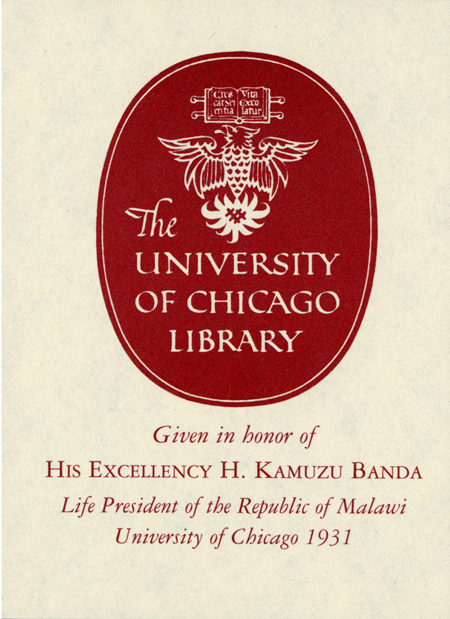Review by Choice Review
This brief memoir narrates Le Clezio's childhood and parts of the life and career of Le Clezio's father, whom the author met for the first time at the age of eight. He recounts his father's career path and aversion for conformity and colonialism, how his father left Mauritius (where he was born), with its rigid colonial English rules, to work as a doctor in Guyana and then West Africa for most of his life. Le Clezio grew up in southern France with his mother and brother during WW II, but in 1948 he emigrated with his mother and brother to join his father in Africa. The author narrates his first meeting with his father and certain aspects of his childhood in Africa. He beautifully describes the strength and intensity of the country and its people. He recounts several specific incidents but overall gives a general impression. The reflections on how family, environment, and place influence the construction of identity are subtly conveyed through this homage to his father, whose nickname, "The African," supplies the title for this book. Summing Up: Highly recommended. All readers. E. A. Vanborre Gordon College
Copyright American Library Association, used with permission.
Review by Publisher's Weekly Review
Even in translation, Nobel Prize in Literature winner Le Clezio's sensual language seduces the reader in this emotive memoir of his childhood spent in Ogoja, a remote village in Nigeria in the late 1940s. The first half recounts his disorienting and formative experiences as a young boy in an unfamiliar country with a stark, violent landscape. Le Clezio describes learning about the world through the "immodesty" of the human body, predating language, with axiomatic declarations such as "freedom in Ogoja was the supremacy of the body." In the second half, Le Clezio begins a hesitant, almost incurious seeking out of his mysterious, authoritative father, whom he did not meet until he was eight years old. The man, referred to simply as "my father," was an ambitious, unconventional doctor who traveled extensively throughout South America and eventually brought the family to colonial Africa. Le Clezio's father's pursuit of a career "practicing medicine in emergency situations, with no equipment, no medicine" in remote areas, and his seeming ambivalence toward any sort of normal' life, even when returning to France after leaving Africa makes for a fascinating portrait. However, readers are only given the briefest of glimpses. The memoir does not feel particularly urgent or meditative, but it is ephemeral and filled with paradoxes, as childhood memories, and an adult's attempt to recapture them, often are. (Sept.) © Copyright PWxyz, LLC. All rights reserved.
Review by Library Journal Review
Le Clezio, recipient of the 2008 Nobel Prize in Literature, recalls the emotive and evocative African experience of his youth. Here, he shapes the figure of a man he hardly knew or understood and met for the first time in Nigeria when he was eight years old. His father, a British citizen of Mauritius, studied tropical medicine in England and practiced in Guyana and Africa. After traveling across Africa with his Leica camera, his father settled in northern Nigeria. Walking from one village to the next, he tended the sick, the diseased, and the dying. After 22 years, he returned home, where Le Clezio's memories are of a silent, taciturn, authoritative, and sometimes violent man. In the process of writing this reminiscence and selecting some of his father's photos to accompany the text, Le Clezio comes to cherish a life subsumed by Africa. None of the photos include his father, and the book never mentions the man's name. VERDICT This is a fluid translation from the French version published in 2004 and a fine introduction to a prolific and relatively unrecognized writer. Recommended.-Lonnie Weatherby, McGill Univ. Lib., Montreal (c) Copyright 2013. Library Journals LLC, a wholly owned subsidiary of Media Source, Inc. No redistribution permitted.
(c) Copyright Library Journals LLC, a wholly owned subsidiary of Media Source, Inc. No redistribution permitted.
Review by Kirkus Book Review
A slim yet resonant autobiographical entry from the Nobel laureate's early years in West Africa. Le Clzio's (Desert, 2009, etc.) memoir of his African youth is thin in length yet rich in detail as he reconciles his experience being spontaneously relocated at 8 with his mother and brother from World War IIera Nice, France, to remote Nigeria. As the only whites in a villages of natives, he describes family life crammed into a rustic homestead with paneless windows and mosquito netting--the best the French government could provide to his father, a military doctor. Even without schooling or sports, the author's cultural enlightenment becomes an explosion of sensations, from the sun-induced bouts of prickly heat to the naked culture's immodest "supremacy of the body." Le Clzio writes of liberating his pent-up frustration from being raised fatherless in dreary, wartime Europe on the African savannah, yet his father, the man he'd reunited with in 1948, emerges as the memoir's beating heart. Restless after medical school, he'd fled Europe for a two-year medical post in Guyana and two decades in West Africa. The author paints his father as pessimistic, lonely, overly authoritative and staunchly repulsed by colonial power, yet happily married. Sadly defeated by time and circumstance, he'd become a stranger and, once relocated back to France, "an old man out of his element, exiled from his life and his passion for medicine, a survivor." Only in his lyrically articulated hindsight does the author truly appreciate his father's good work and a unique, memorable childhood. A vivid depiction of a splintered childhood and the lovely wholeness procured from it.]] Copyright Kirkus Reviews, used with permission.
Copyright (c) Kirkus Reviews, used with permission.
Review by Choice Review
Review by Publisher's Weekly Review
Review by Library Journal Review
Review by Kirkus Book Review

